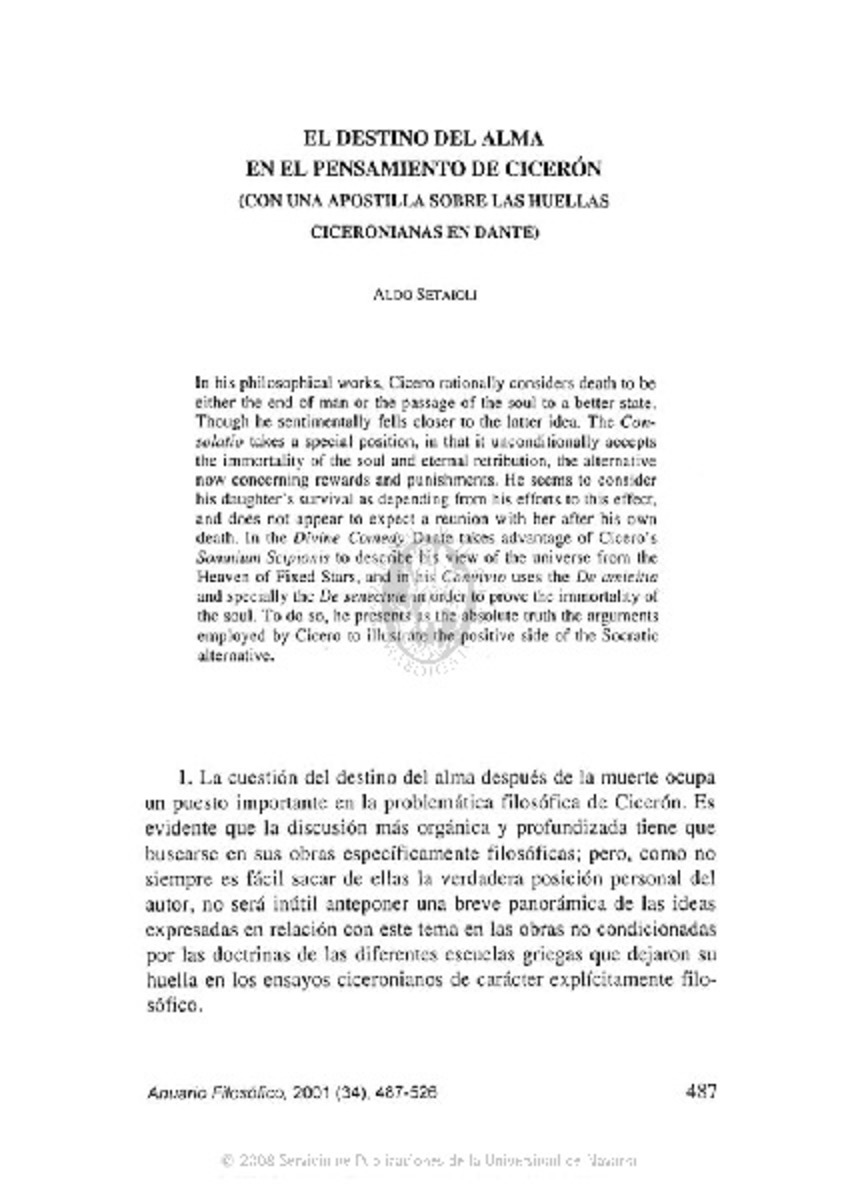El destino del alma en el pensamiento de Cicerón (con una apostilla sobre las huellas ciceronianas en Dante)
Ficheros en este ítem:
Estadísticas e impacto
Los ítems de Dadun están protegidos por copyright, con todos los derechos reservados, a menos que se indique lo contrario.







